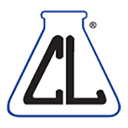Our Members Asked:
Does urolithin A reduce age-related muscle decline, osteoarthritis, or other age-related diseases?

Answer:
Urolithin A is a natural compound formed by the bacteria in the colons of about half of elderly people after consuming certain foods. Urolithin A seems to improve the function of mitochondria (the "powerhouses" inside our cells). However, clinical research with urolithin A has suggested only limited benefit in improving muscle health in active young adults or middle-aged and older adults. Urolithin A has also been touted for treating osteoarthritis (painful, worn joints), preventing kidney damage, and preventing age-related macular degeneration (AMD), but is there evidence to support these uses? Find out in our full answer, which also includes information about safety and a comparison of products, including Mitopure, by signing in as a CL member.
Also see our separate article about other supplements for building and maintaining muscle.
Join today to unlock all member benefits including full access to all CL Answers and over 1,400 reviews.
Join NowAlready a member? Sign In Here.
Join now at www.consumerlab.com/join/







Helen21491
December 24, 2024At age 72 and due to a torn ligament, I started taking collagen peptides. Two spoonfuls in my morning coffee. 7-8 months later, I suspect that they have some muscle strengthening effect. I take coq10 and other supplements, I walk a lot, but I am aware of an energy level I lacked earlier. I have somehow regained my youthful stride.
Reply to this post…
Daniel21367
December 09, 2024Has anyone had bloodwork done both before and after using Urolithin A for at least thirty days? I see people talking about not experiencing any changes, but I wonder if improvements would be detectable other than through various health biomarkers visible in bloodwork.
Reply to this post…
Janine21133
November 20, 2024Is urolithin A created by gut bacteria, and if so, which species?
 ConsumerLab.com
ConsumerLab.com
February 26, 2025Gut bacteria species that may produce urolithin A include the following: Bifidobacterium pseudocatenulatum, Streptococcus thermophilus, Lactococcus garvieae, and Enterococcus faecium (https://www.mdpi.com/2304-8158/12/5/1021).
Reply to this post…
Becky21124
November 19, 2024I had high hopes for increased muscle strength, and took Urolithin A for a year. I noticed no perceptible (by me) improvement. I’ve stopped taking it, and haven’t noticed any decline of muscle strength or endurance either. As a supplement, it’s kind of expensive, so I did notice significant savings when I stopped taking it:-)
Reply to this post…
Joseph21123
November 19, 2024One overlooked benefit from Urolithin A is for IBD, it significantly upregulates tight gap proteins, which holds the intestinal epithelial cells together.
See the following research paper from 2019 for futher information on this: https://doi.org/10.1038/s41467-018-07859-7
 ConsumerLab.com
ConsumerLab.com
April 02, 2025Although interesting, this supporting evidence is based on only pre-clinical research. At this time, we are not aware of any clinical studies assessing the benefit of urolithin A for IBD in humans.
Reply to this post…
GeezerGeek
November 13, 2024I've been taking 1000 MG Urolithin A (Neurogan) supplements for two and a half months. I'm 76, relatively healthy, but getting weaker. My daily routine is relatively consistent, activity wise.
So far I have not noticed any improvement, but no degradation either.
As per the requirements to post, I am stating that I do not have any incentive nor de-incentive to make my personal use statements.
Reply to this post…
LYNN19568
May 28, 2024I've been taking it for only 50 days and see no improvement in anything. I have a bit of arthritis, am 76 and active, have depression (taking medication).
GeezerGeek
November 15, 2024I too am 76, somewhat active, taking Wellbutrin for depression and I have been taking 1,000 MG of Pro + Urolithin A (Neurogan + Health) for two months. I don't recognize any changes of improvement regarding my muscle strength nor endurance. I am aware that the improvements are expected to be noticed after a period of time and supplementation. I plan to continue for at least 6 months to give it a reasonable test period.
Reply to this post…
Ken19376
April 24, 2024At 78 I just started taking Urolithin A two weeks ago, but with sciaticia and arthritis, I don't expect a lot. I use a rolator to have a place to sit when my leg goes numb, but I do what I can. I currently walk 3 to 4k steps a day and hope to double that this summer.
Reply to this post…
Tom18872
February 28, 2024I’m in agreement with MJ about muscle growth, I am 79 and thinking about taking Urolithin A. Thanks for all your help
Reply to this post…
Lisa18710
February 12, 2024Hello, I thought I understood that the subjects taking the Urolithin A did perform better on the 6 mile walk test?
 ConsumerLab.com
ConsumerLab.com
February 21, 2024Thanks for your question. In the Liu study, the participants in the urolithin A group did show an improvement in 6-minute walk distance, but the improvement was not significant compared to the placebo group (which showed a similar improvement).
Reply to this post…
MJ De Vries
October 20, 2022I lost 45 lbs during the pandemic. also muscle mass. now i have "cooper's droop" everywhere and cannot lift very heavy boxes like I could before, i used to lift weights for
fun and enjoyment just to see how much I could. I got up to 235 lbs.. but that was in my
20's and now I'm in my 70's and I exercise for an hour every day, but I am not getting the
muscle mass back. Would like to see a study on how to build muscle mass with supplements as well. thanks for all you do ConsumerLabs!!!
 ConsumerLab.com
ConsumerLab.com
October 20, 2022Hi MJ - We've added a link in the article above to a broader article about supplements, excercise, and muscle. Be aware that gradual loss of muscle/strength is normal with aging, but resistance exercise with appropriate nutrition can help. However, if you have a rather sudden loss of muscle and strength, you may want to consult a physician to be sure there is nothing else going on, such as myositis.
Reply to this post…